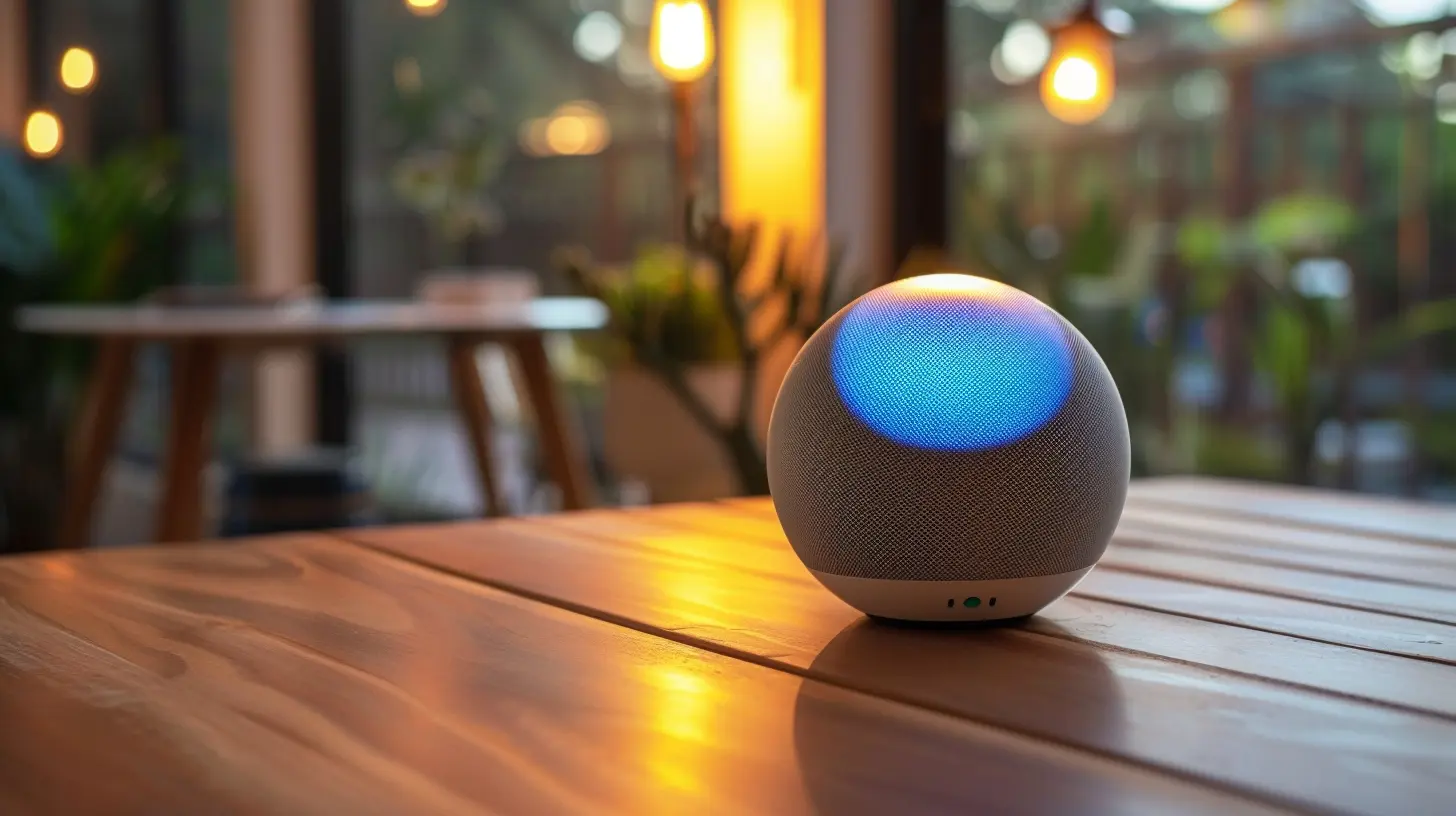Breaking Language Barriers: How Voice Assistants are Facilitating Cross-Cultural Communication
25 April 2025
Have you ever found yourself in a situation where language became a roadblock? Maybe you were traveling abroad, trying to order a meal, or attempting to have a conversation with a new friend from a different culture. Language barriers have been a challenge for centuries, but thanks to technology, that gap is narrowing—fast!
Enter voice assistants—your friendly, AI-powered translators. These virtual helpers, like Siri, Alexa, and Google Assistant, are making cross-cultural communication smoother, easier, and more natural. But how exactly are they achieving this? Let's dive in!

The Evolution of Communication Technology
Before voice assistants came into play, we had to rely on dictionaries, phrasebooks, or even awkward hand signals to communicate with people who spoke different languages. Remember the good old days of flipping through a travel guide just to say "Where is the bathroom?" Yeah, those days are fading fast!Fast forward to the 21st century, and we now have real-time translation tools that can not only translate words but also understand context, tone, and slang. This shift has been a game-changer for travelers, businesses, and everyday conversations.

How Voice Assistants Are Breaking Language Barriers
Voice assistants aren’t just about playing your favorite music or reminding you about your next meeting. They're revolutionizing how people communicate across different languages and cultures. Here’s how:1. Real-Time Translation
Imagine you're lost in Tokyo, and you need directions. You pull out your phone, speak in English, and—ta-da!—Google Assistant translates your request into Japanese instantly. Pretty cool, right?Real-time translation features allow users to communicate on the go, without needing to memorize a single word in another language. With AI’s advanced understanding of context, these assistants can accurately convey meanings rather than just words.
2. Voice Recognition and Natural Speech Processing
One of the biggest challenges with language translation has been understanding accents, dialects, and speech variations. But today’s AI-powered voice assistants are trained on massive datasets that include different accents and speech patterns.Modern voice assistants use Natural Language Processing (NLP) to ensure that even if you have a thick accent or speak quickly, they can still understand and translate what you’re saying.
3. Bridging Cultural Gaps
Communication isn’t just about translating words—it’s about understanding cultural differences too. Some phrases don’t translate literally, and using them incorrectly can cause misunderstandings.Good news: many voice assistants adapt to cultural nuances and adjust translations accordingly. They recognize idioms, humor, and context, ensuring conversations feel natural rather than robotic.
4. Helping Businesses Go Global
In the business world, language barriers can be a major obstacle. Companies aiming to expand internationally often struggle with customer service, marketing, and negotiations due to language differences.Voice assistants are changing the game by:
- Automatically translating customer queries
- Providing real-time multilingual support
- Helping teams collaborate across different languages
This means businesses can connect with people all over the world without hiring an entire translation department.
5. Improving Accessibility for Language Learners
Ever wanted to learn a new language but found it too difficult? Voice assistants double as language-learning buddies, helping users practice pronunciation, understand grammar, and improve fluency.Some cool ways voice assistants help language learners include:
- Providing instant word translations
- Helping with pronunciation corrections
- Encouraging daily language practice
- Engaging in basic conversation exercises
It's like having a 24/7 personal tutor in your pocket!

Challenges Voice Assistants Still Face
As revolutionary as they are, voice assistants aren’t perfect. There are still a few hiccups in their journey to perfecting cross-cultural communication.1. Translation Errors
Even the best AI translator can sometimes get things wrong. Words and phrases with multiple meanings or cultural nuances can still lead to awkward or inaccurate translations.2. Limited Language Support
While popular languages like English, Spanish, and Mandarin are well-supported, some regional languages and dialects don't get the same attention. This can leave millions of people unable to reap the full benefits of voice assistants.3. Privacy Concerns
Since voice assistants rely on listening technology, there are ongoing concerns about privacy. Users worry about data collection, accidental eavesdropping, and how their voice data is being used.Despite these challenges, tech companies are constantly improving voice recognition and translation capabilities to make communication smoother and more accurate.

The Future of Voice Assistants in Cross-Cultural Communication
So, what does the future hold? Well, it’s looking pretty exciting! As AI becomes smarter and more intuitive, voice assistants will continue to transform global communication.Some future possibilities include:
✅ Hyper-accurate translations using AI that can learn from real conversation patterns✅ Better cultural adaptation so translations sound even more natural
✅ More languages and dialects being supported, making them accessible worldwide
✅ Seamless integration with wearable tech, helping users translate speech instantly while traveling
The dream? A world where language is never a barrier, and communication flows effortlessly, no matter where you are or who you’re talking to.
Final Thoughts
Voice assistants have already come a long way in breaking language barriers, and they’re only getting better. Whether you're traveling, doing business, or just trying to make a new friend, these AI-powered tools are making global communication easier than ever.While they’re not perfect (yet), their potential is limitless. Who knows? Maybe in just a few years, we’ll be having fluent conversations with anyone, anywhere—without ever needing a translation app.
The future of communication is here, and it's voice-powered!
all images in this post were generated using AI tools
Category:
Voice AssistantsAuthor:

Pierre McCord
Discussion
rate this article
5 comments
Finnian Hall
Impressive insights on voice assistants bridging cultural gaps!
May 8, 2025 at 2:53 AM

Pierre McCord
Thank you! I'm glad you found the insights valuable. Voice assistants truly have the potential to enhance cross-cultural communication.
Sawyer Webster
This article effectively highlights the transformative role voice assistants play in bridging language divides. By enabling real-time translation and fostering accessibility, these technologies not only enhance personal interactions but also promote global collaboration, ultimately enriching cultural exchanges and paving the way for a more interconnected world.
May 1, 2025 at 2:28 PM

Pierre McCord
Thank you for your insightful comment! I appreciate your recognition of how voice assistants are transforming communication and fostering global connections.
Tilly McGeehan
Revolutionizing global communication effortlessly!
April 30, 2025 at 4:13 AM

Pierre McCord
Thank you! I'm glad you found the article highlights the transformative power of voice assistants in bridging communication gaps.
Hope Rodriguez
This article highlights the significant role of voice assistants in enhancing cross-cultural communication. While they offer impressive advancements in language translation, it's essential to consider potential limitations and the importance of human nuance in conversations.
April 28, 2025 at 2:23 PM

Pierre McCord
Thank you for your insightful comment! You're absolutely right—while voice assistants greatly enhance communication, we must remain mindful of their limitations and the irreplaceable value of human nuance.
Sera Holland
Voice assistants: the ultimate digital diplomats! Finally, tech is stepping in to save us from awkward language fails. Who knew AI could be the life of the party?
April 25, 2025 at 3:30 PM

Pierre McCord
Absolutely! Voice assistants are revolutionizing communication, making interactions smoother and more inclusive across cultures. Their role in bridging language gaps is truly remarkable!




